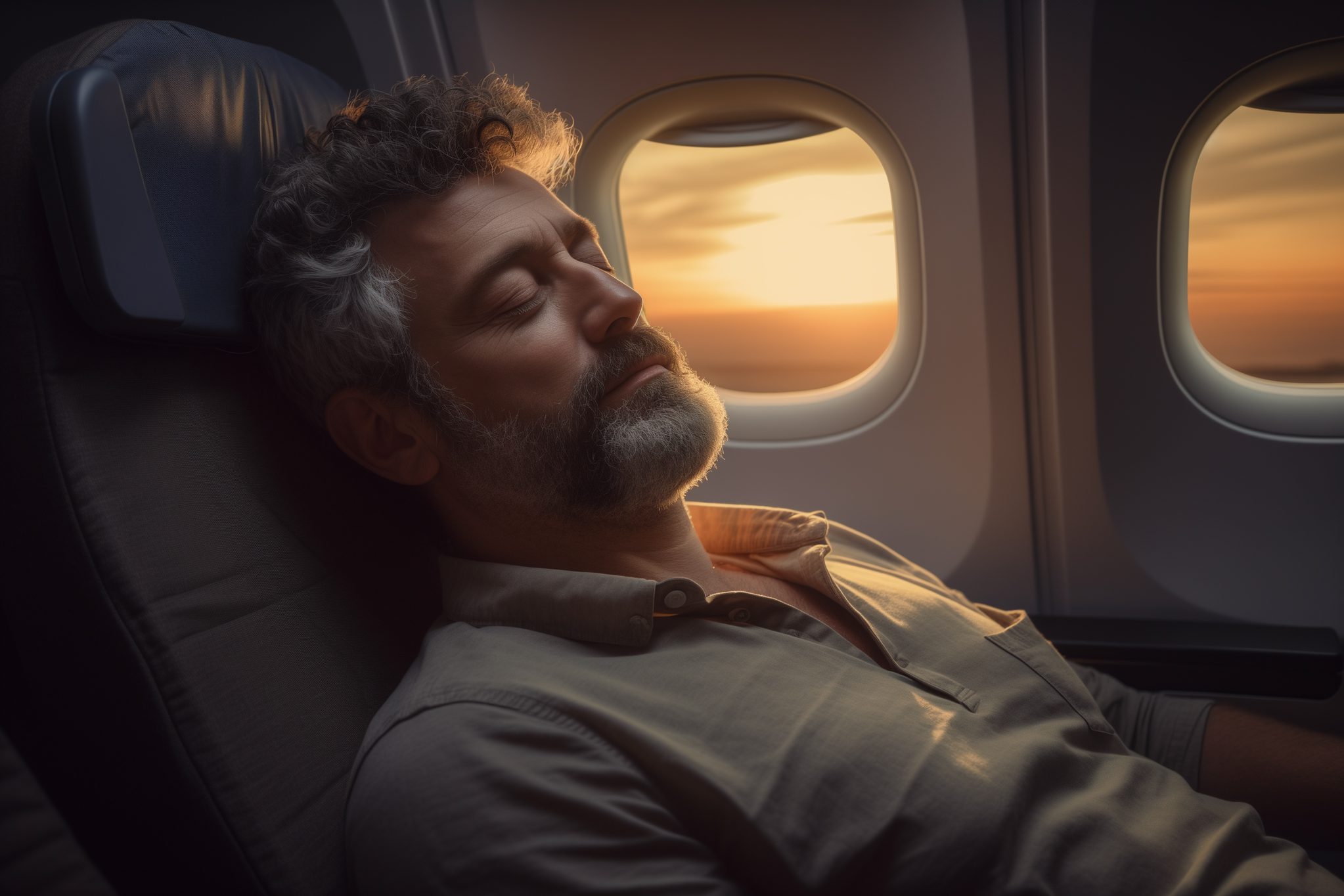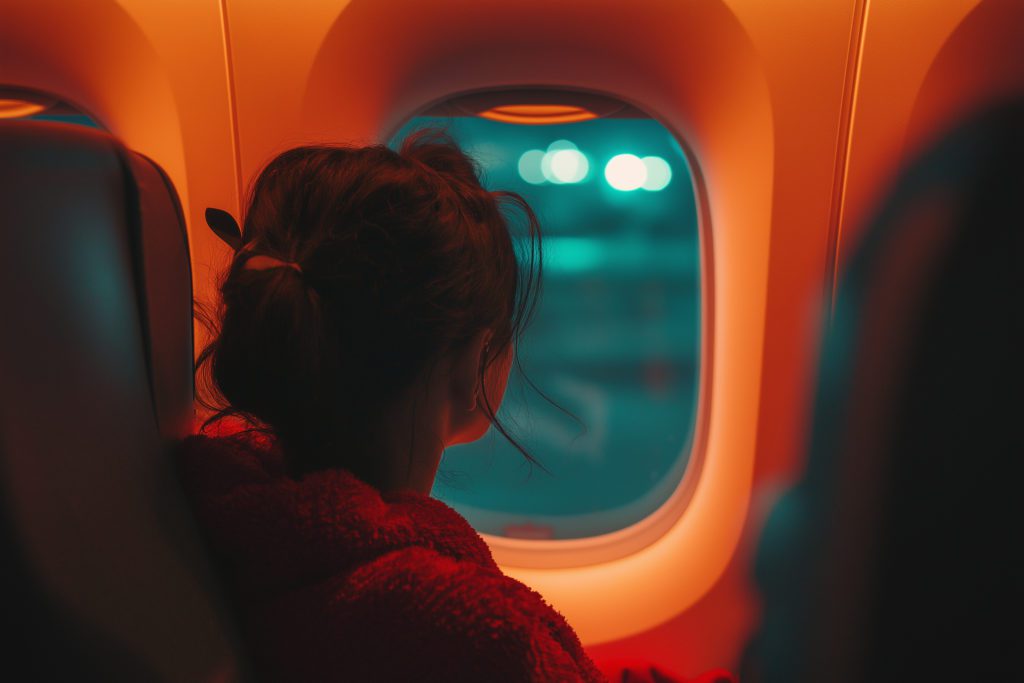
Managing Jet Lag: Tips for Minimizing Disruption to Your Sleep Schedule
Discover how to combat jet lag and maintain your sleep schedule while traveling. Learn effective strategies to minimize your sleep disruption for maximum rest.

If you're planning to travel more than three time zones away, then be prepared to deal with jet lag. Jet lag is what happens when you travel when your circadian rhythm is interrupted because you've gone more than three hours away from your place of residence. Jet lag can be a real issue if you don't know how to deal with it, but fortunately, we have a few tips to help you mitigate the challenges of jet lag and sleep schedules while you're traveling.
In this article, we'll discuss how to mitigate jet lag one step at a time to ensure that you get good sleep no matter how far and wide you travel this year. Whether your travels take you to Asia, to Europe, or simply just across the country, it's better to be prepared than to lose sleep.
Work to Prevent Jet Lag Ahead of Time
The first way to deal with jet lag is to prevent it from occurring. Now, it's important to recognize that jet lag itself cannot always be prevented, but there are steps that you can take to revamp your sleep schedule and try to sleep according to where you're traveling. This is, unfortunately, only possible for shorter distances where sleeping earlier or later may make more sense.
For instance, if you're traveling to the West Coast and live on the East Coast of the United States, you could try to stay up a little later and sleep in a little later to get acquainted with the new time zone. However, this is not the best for people who want to preserve their mental or physical health, as longer transitions can be much more difficult to mitigate!
Increase Your Light Exposure
If preventing jet lag ahead of time does not work or you prefer another method, the next best thing to do is to increase your light exposure to adjust to the new time zone with ease. This is especially helpful if you're in a place where the usual day and night cycle, or circadian rhythm, is much different than where you live. The more that you expose yourself to light, especially if you're used to being asleep during this time, the more likely your body is to actually recognize that it should be awake rather than asleep.
Studies show that this has a minimal effect compared with other methods that people use to try and avoid jet lag; however, light exposure does help people stay awake throughout the day. This has worked on athletes, as light exposure as an aid for resynchronizing the human circadian rhythm during travel was actually quite effective. So, light exposure might be one of the best and most natural ways to cure a spell of jet lag if you’re traveling.
Stay Hydrated While You Travel
One unexpected way to help with jet lag is actually by staying hydrated while you travel. Many people who fly will often find themselves victim to dehydration, and this can be a major challenge and also a significant contributor to some of the more intense symptoms of jet lag. The more dehydrated you feel, the more likely you are to have a headache or even feel as though you need more sleep.
Staying hydrated means sticking to water rather than having caffeine or alcohol. Even though caffeine or alcohol may seem tempting and help you stay awake or even sleep throughout the night while you travel, it can have a serious downside when you touch down and have to reacclimate yourself to the new time zone.
So, if you're considering how best to prepare for your flight, be sure to drink lots of water, even if it means taking a few extra trips to the bathroom so you'll be more rested and less jet-lagged when you arrive.
Take a Melatonin Supplement
One final way that you can mitigate jet lag with ease is by taking a melatonin supplement. Melatonin is a hormone that can help you regulate your sleep cycle. That's why it works so effectively: because it was literally meant to help you regulate your sleep cycle. Now, it's important to recognize that melatonin should not be taken regularly, but for jet lag, it can be taken to induce sleep and help you reset your biological clock.
The best way to take advantage of melatonin is to take a low dosage to help you encourage your body to rest. These will be synthetic or man-made forms of melatonin, but they can help with jet lag and, when taken at the right time, can have a beneficial effect on alleviating any symptoms you may be experiencing. Melatonin supplements are used by pretty much anyone today, but studies have been done on athletes to show how effective it truly is.
Ahead of the Tokyo Olympic Games, athletes were studied to see whether or not melatonin would help them with getting enough sleep. As expected, melatonin actually did help with jet lag if someone took a pre-flight tablet and a post-flight tablet for four days at bedtime after they arrived to ensure that they adjusted. This can be absolutely beneficial for those who have to make long-distance trips, especially those to other parts of the world where you have to get used to being up when you’d normally be asleep.
How Will You Mitigate Jet Lag?
Mitigating jet lag is no easy feat, but hopefully, with these tips, you'll be able to take steps to help you either prevent some of the symptoms or work through them with grace. No matter what you choose, any of these tips will be absolutely essential for your next big vacation several time zones away.
FAQ
How long does jet lag usually last?
Jet lag typically lasts 2 to 7 days, depending on factors like time zones crossed, age, and sleep habits. It usually takes about a day to adjust per time zone traveled, with eastward travel causing longer recovery times than westward. Proper planning, light exposure, and good sleep habits can help speed up adjustment.
What role does age play in jet lag severity?
Older adults often experience more severe jet lag due to slower circadian rhythm adjustments and lighter sleep. As we age, adapting to new time zones takes longer. Good sleep hygiene and gradually shifting sleep patterns before travel can help reduce its impact
Does flying frequently make jet lag easier to handle?
Frequent travelers may develop coping strategies like adjusting sleep schedules and managing light exposure. However, their bodies still experience disruptions, and maintaining hydration, good sleep habits, and exposure to natural light remains crucial for adaptation.
Why is it that some people do not struggle with jet lag?
Some people adjust more easily due to genetics, flexible sleep patterns, or healthy circadian rhythms. Younger individuals and frequent travelers may develop habits like managing light exposure and maintaining consistent sleep routines, making adaptation easier.
Do pilots and flight attendants struggle with jet lag?
Yes, pilots and flight attendants often experience jet lag due to frequent travel across time zones and irregular sleep patterns. Airlines provide guidelines to help manage fatigue, such as strategic napping, proper hydration, and controlled light exposure. Some professionals also adapt to a "home time zone" strategy to reduce disruptions
Does sleeping during the flight help or worsen the symptoms?
Sleeping during the flight can either help or worsen jet lag depending on the timing. If you sleep according to the destination’s nighttime, it can help align your body clock and reduce jet lag. However, sleeping too much or at the wrong time (like when it’s daytime at your destination) can confuse your circadian rhythm, potentially making symptoms worse. A sleep mask or noise-canceling headphones can assist with strategic rest.

Written by
Marie Soukup
Marie Soukup is a seasoned copywriter, editor, and Integrative Nutrition Health Coach with a certificate from the Institute of Integrative Nutrition (IIN). With five years of experience working with brands across diverse industries, Marie is passionate about holistic health and crafting compelling content.
Download Pillow
Get help
Press & News
Legal
Connect
X (Twitter)
Company
Copyright © Neybox Digital Ltd.



